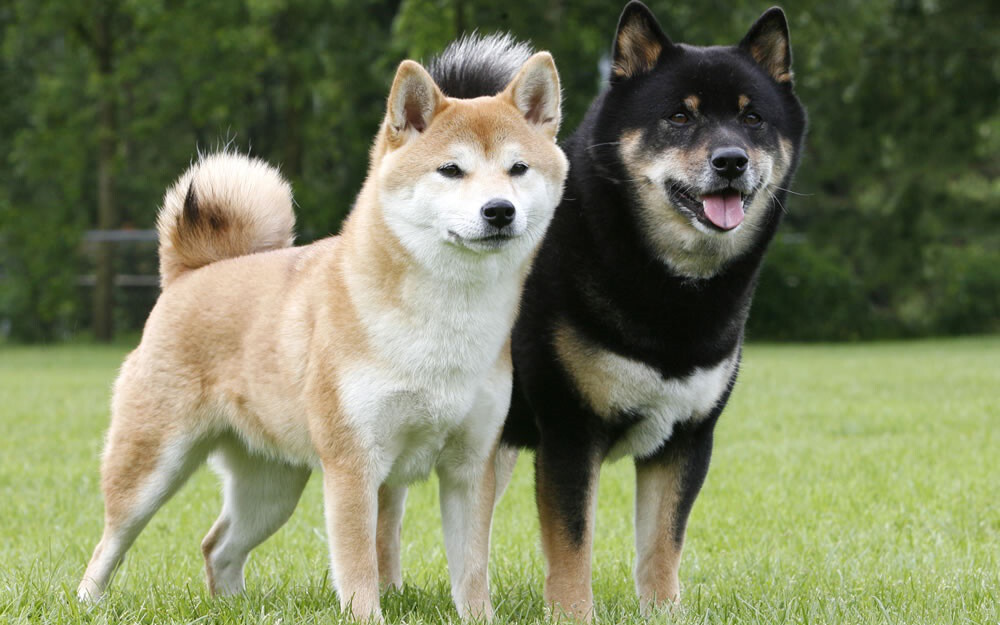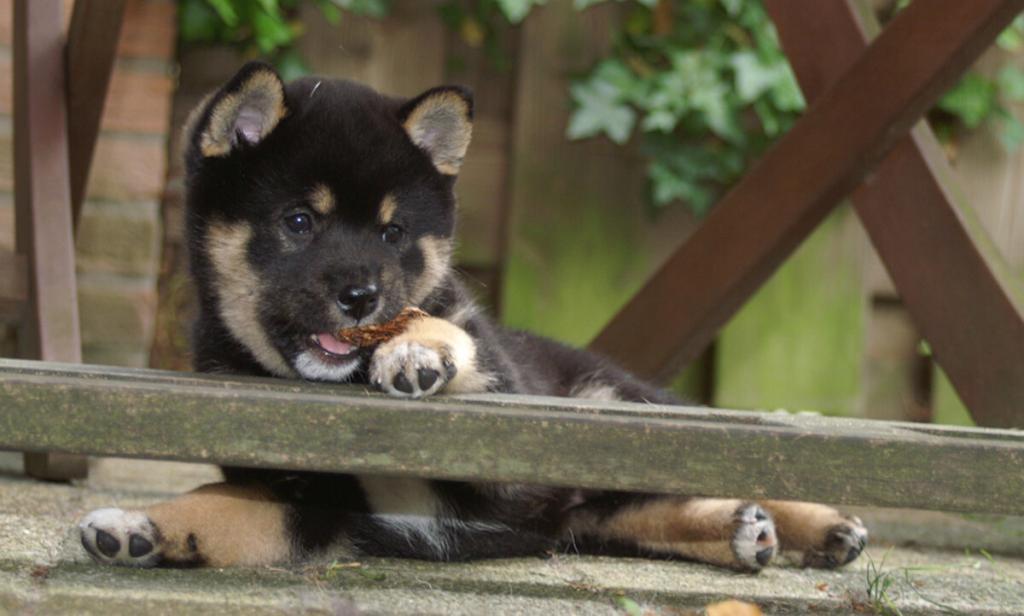As the rising sun marks a new dawn in the Land of the Rising Sun, the Shiba Inu emerges as a distinct symbol of Japan’s rich cultural heritage.
You might find yourself enchanted by this spirited breed, known for its fox-like appearance and dynamic personality. With a history steeped in tradition, the Shiba Inu carries itself with a confidence that belies its small stature, a trait you’ll notice immediately.
As you consider welcoming a Shiba into your life, it’s crucial to understand its unique characteristics and the specific care it requires. Proper socialization, exercise, and grooming are not just recommendations but necessities for this breed.
Yet, there’s more to these captivating canines than meets the eye. Stick around, and you’ll uncover the layers of complexity and charm that make the Shiba Inu a beloved yet sometimes challenging companion.
- Noise Level
- Energy
- Sociability
- Trainability
- Care
- Health
Overall
Summary
The Shiba Inu is a moderately noisy breed with a high energy level. They are moderately sociable and trainable, requiring moderate care but generally maintaining good health.
Shiba Inu: Traits, Temperament, and Care Guide
Delving into the characteristics of the Shiba Inu, you’ll find a breed distinguished not only by its compact, agile physique but also by a temperament that combines confidence with a discerning wariness of unfamiliar faces.
Emblematic of the Japanese breed, the Shiba Inu is intrinsically good-natured and alert. Yet, its bold disposition requires a keen understanding of its high prey drive and instinctual guarding behaviors. Regular brushing fosters a sense of belonging and not only maintains the Shiba Inu’s ideal weight through the management of its dense coat but also reinforces your bond.
Shiba Inu needs a balanced daily exercise regimen to regulate energy levels, which is essential to mitigate potential aggression. Attuned care ensures this breed’s compatibility, even in households with children, when proper socialization is initiated early.
Exploring the Characteristics of the Shiba Inu
In exploring the characteristics of the Shiba Inu, it’s essential to consider their historical role as hunters in Japan. This role instilled in them a keen alertness and agility that are evident even in today’s domesticated companions. As a Japanese breed, Shiba Inus reflect the classic spitz traits: a thick double coat, a high energy level, and a spirited, good-natured disposition.
| Characteristic | Detail |
|---|---|
| Origin | Japan, historically bred for hunting |
| Appearance | Fox-like face, compact body, double coat |
| Temperament | Alert, good-natured, bold, can be wary of strangers |
| Grooming | Requires regular grooming due to double coat |
| Health | Generally healthy, potential for hip dysplasia and eye problems |
Shiba Inu: A Comprehensive Profile and Guide
You’ll find that the Shiba Inu embodies a distinctive set of traits, reflecting its history as a versatile Japanese hunting dog.
Analyzing their behavior reveals a complex interplay of loyalty and independence, requiring astute socialization strategies to mitigate their innate caution around strangers.
To address their physical needs, you must commit to a regimen of exercise and grooming while being mindful of their strong prey drive during leash training.
Everything You Need to Know
Understanding the Shiba Inu breed requires a comprehensive examination of its distinctive characteristics, from its origins to its unique personality traits and specific care needs.
Shiba Inu dogs are native Japanese canines known for their:
- Distinctive Physical Traits
- Thick coat: prone to heavy shedding, necessitating weekly brushing
- Fox-like appearance: small, agile body with upright ears
- Cognitive and Behavioral Aspects
- Highly intelligent: capable of learning good manners with proper guidance
- Independent nature: may exhibit stubbornness, underscoring the importance of Obedience training with positive reinforcement
- Health and Nutrition
- Longevity: generally a healthy breed with proper nutrition and care
- Exercise: requires daily activity to maintain physical and mental well-being
Delving into these facets helps ensure you’re well-prepared to integrate a Shiba Inu into your life.

Discovering the Temperament
Delving into the temperament of Shiba Inus reveals a complex blend of loyalty, alertness, and independence that requires thoughtful socialization and training strategies. Shiba Inus are good family dogs, often known for their affectionate nature towards their family members. Despite this, they can be quite independent, mirroring traits often associated with cats, including meticulous grooming habits.
Their strong prey drive and hunting instincts mean they may not always get along with other small dogs or animals, necessitating early and consistent socialization. Good with children when properly introduced, Shiba Inus still require play sessions that offer both physical exercise and mental stimulation to channel their energy positively.
Training these family dogs demands patience, as they can be stubborn, but positive reinforcement can help forge a strong bond.
Shiba Inu: Is It a Good Fit for Families?
When considering a Shiba Inu as a family pet, you must evaluate their temperament and behavioral traits.
Their loyalty and good nature can enhance the family dynamic, yet their independent streak necessitates firm training strategies.
It’s crucial to analyze if your household environment aligns with the Shiba Inu’s need for exercise and mental engagement to ensure a compatible match.
Assessing Shiba Inu’s Compatibility with Families and Kids
Evaluating the Shiba Inu’s compatibility with family life requires carefully considering its temperament and behavior, particularly its interactions with children and response to household dynamics. As a potential pet owner seeking belonging, you’ll find the Shiba Inu dog, one of Japan’s esteemed native breeds, can be a delightful addition if its traits align with your family’s lifestyle.
- Temperament & Socialization
- Generally good-natured and affectionate with families
- Needs early socialization to interact well with children
- May exhibit guarding behaviors; supervision with young children advised
- Exercise & Environment
- Active dog requiring regular exercise
- A fenced yard is ideal for their strong prey drive
- Training & Health
- Easy to train but requires consistent leadership
- Small size yet a healthy breed, fitting for companion dogs
Shiba Inu City Adaptation
Shiba Inus can thrive in urban environments with ample exercise and consistent mental challenges. As an apartment dog, this intelligent breed needs plenty of stimulation to prevent boredom and destructive behavior. Daily walks are non-negotiable for their physical and mental well-being, but beware—they may have difficulty resisting the chase if they detect small game. Thus, they should always be leashed to avoid escapes triggered by their strong prey drive.
While adaptable, Shibas require early socialization and rigorous training to navigate city life successfully. Their tendency to vocalize with a high-pitched scream when unhappy or stressed is something to consider in close-quarters living. Additionally, they’re prone to certain health conditions, so maintaining a routine of grooming and vet visits is crucial for longevity in an urban setting.

Shiba Inu Obedience Tips
When training your Shiba Inu, you’ll find that employing patient, positive reinforcement aligns with their independent nature, enhancing their learning process.
Early socialization mitigates tendencies toward shyness or aggression, integrating a stability in their temperament.
To control their strong prey drive, leash training isn’t only advised but necessary to prevent potential escapades.
Effective Training Strategies
To effectively train a Shiba Inu, it’s essential to employ positive reinforcement, rewarding their clever behavior with treats and praise to capitalize on their innate intelligence and independent streak. As descendants of the spitz-type dogs native to Japan and bred for hunting in the brushwood, these Shiba Inus, whose name means “brushwood,” are known for their agility, sharp minds, and curly tails. By investing time in training, you’ll gain a well-behaved companion and peace of mind.
| Strategy | Benefit | Tips |
|---|---|---|
| Positive Reinforcement | Enhances learning and bond with the dog | Use treats and verbal praise |
| Leash Training | Manages prey drive and safety | Practice in varied environments |
| Mental Stimulation | Keeps the dog engaged and quick to learn | Incorporate games and puzzles into sessions |
You foster a sense of belonging and partnership when training your Shiba Inu using these effective strategies.
Exercise and Grooming Needs
Maintaining a Shiba Inu’s health and well-being necessitates a regimen of daily exercise, including routine walks and interactive play sessions, alongside diligent grooming to manage their dense, double-layered coat. Brushing is needed to remove dead hair from the undercoat covered by a straight topcoat, especially during shedding seasons. Regular grooming prevents matting and the build-up of excess hair, ensuring a clean breed that inherently repels dirt.
To maintain a healthy weight, avoid overfeeding and provide ample playtime. Your Shiba Inu, bred to hunt, requires physical activities to satisfy its innate instincts. Exercise and grooming needs aren’t just about physical upkeep and nurturing a sense of belonging and contentment in your devoted companion.
Health Considerations
Considering a Shiba Inu’s health, it’s essential to recognize their susceptibility to certain hereditary conditions, such as hip and elbow dysplasia and potential eye disorders.
Integrating preventative measures and regular veterinary check-ups would be best to safeguard their well-being throughout each life stage.
Common Health Issues and Lifespan
Shiba Inus typically enjoys a lifespan of 12 to 15 years. However, they can be prone to specific health issues such as hip dysplasia, luxating patella, and allergies. Regular veterinary check-ups are vital for the early detection of these conditions and to ensure a healthy Shiba.
If left unmanaged, hip dysplasia can lead to other health complications, including arthritis. Luxating patella, a condition where the kneecap dislodges, can diminish your dog’s mobility. Allergies often manifest through skin irritations, necessitating a carefully chosen diet to avoid triggers.
Weight gain can exacerbate these health problems, so finding the right dog food to keep your dog happy and healthy is crucial. Lastly, always obtain your puppy from a reputable breeder to minimize the risk of genetic health issues.

Is Shiba Inu the Right Dog for You?
Considering a Shiba Inu as your canine companion requires careful evaluation of your lifestyle and willingness to meet their exercise, training, and healthcare needs. As you ponder whether this Japanese Spitz is the best pet for you, contemplate the commitment to regular grooming—their ears and curly tail demand it.
If you’re thinking about welcoming a dog into your life, incredibly one as spirited as the Shiba Inu, consider their need for a secure environment and their instinctual prey drive when choosing.
Are you prepared to invest in their well-being, addressing potential health issues like hip and elbow dysplasia? Will your family adapt to a dog in Japanese culture, known for its independence, especially with children, as long as proper socialization is a given?
Reflect on these points before getting a dog of this breed.
Alternatives for Shiba Inu: Alert and Independent Small to Medium Breeds
For those who love the
Shiba Inu’s alertness and independence, these small to medium breeds offer a similar combination of sharpness and self-reliance.
| Similar Dogs | Short Description |
|---|---|
| Basenji | Known as the “barkless dog,” it’s independent and intelligent, with a unique personality. |
| Akita | A larger Japanese breed, renowned for its dignity, loyalty, and courageous nature. |
| Finnish Spitz | A breed known for its fox-like appearance and lively, alert temperament. |
| Alaskan Klee Kai | A smaller version of the Husky, known for its intelligence and loyalty. |
| Jindo | A Korean breed known for its loyalty, intelligence, and elegant appearance. |
Conclusion
In conclusion, with its spirited demeanor and fastidious grooming needs, the Shiba Inu epitomizes the duality of ancient tenacity and modern companionability. It would be best if you weighed its independent streak against your capacity for consistent training and socialization.
Their exercise regimen and health checks are non-negotiable for longevity. Deliberate if this breed’s distinctive charm aligns with your lifestyle; only then can this venerable Nipponese hunter transition seamlessly into a cherished household sentinel.